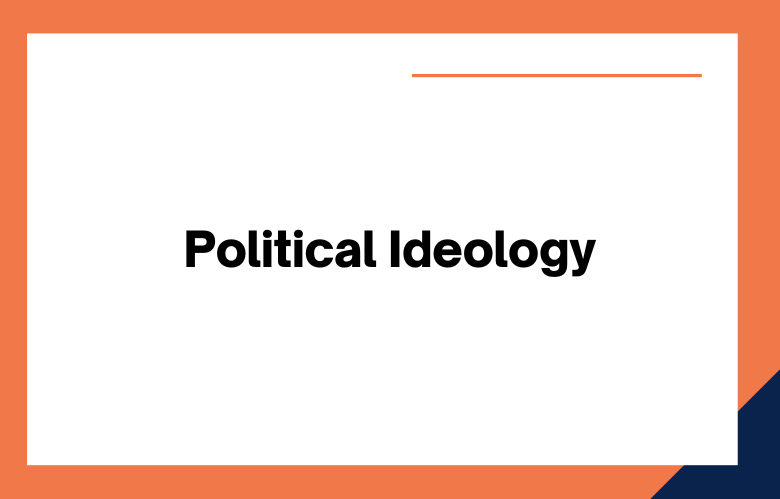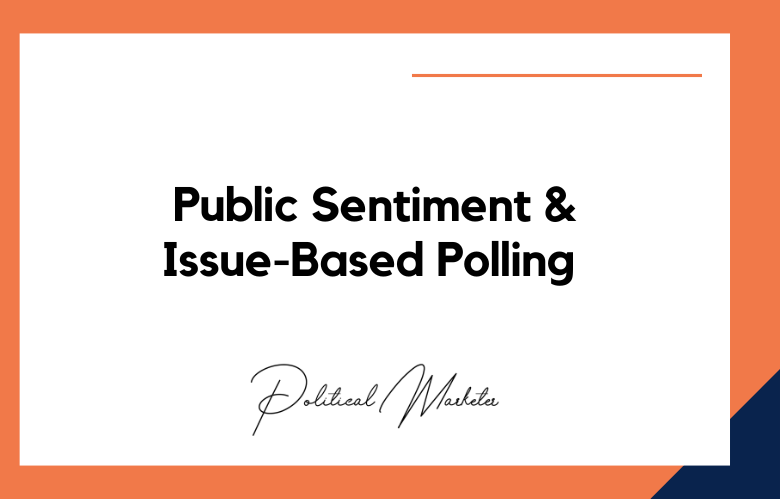Social media has recently become the go-to political discourse and opinion-sharing platform. Millions of people share and express their political views daily on social media.
Therefore, data from social media platforms can provide insights into an individual’s political ideology based on their footprints.
There has been a recent surge in interest in analyzing social media data to predict political ideology.
With this in mind, we will explore predicting political ideology from social media data and footprints. Social media has become a massive part of our daily lives, and with it, much of our personal information is available to companies and algorithms.
These platforms have amassed an enormous amount of data, which is being used to predict our behavior and preferences. One of these predictions is a political ideology.
Can we expect someone’s political beliefs and affiliations based on their social media data and footprints? Explores the power and pitfalls of predicting political ideology from social media data and footprints.
The Power of Social Media Footprints: Predicting Political Ideology.
Social media has become an integral part of our daily lives, with millions of users actively posting, sharing, and engaging with content on various platforms.
These platforms are now being used to predict users’ behaviors, interests, and political beliefs.
Social media footprints can reveal a considerable amount of information about an individual, including their likes, comments, shares, posts, and the communities they belong to.
This data can be used to profile an individual’s political ideology and preferences accurately.
The use of social media footprints to predict political ideology has become more prevalent in recent years, especially during elections.
This analysis involves sophisticated algorithms to identify, sort, and categorize online activity to generate insights into users’ political perspectives.
For instance, when an individual likes and shares posts from conservative pages, the algorithm determines that they lean towards conservative politics.
Using Social Media Data to Predict Political Ideology: A Machine Learning Approach.
With the increasing popularity of social media platforms, there has been a growing interest in understanding the impact of social media on political ideology. Researchers have started exploring how machine learning techniques can be used to predict political ideology using social media data.
A recent study published in PLOS ONE used a machine learning approach on Twitter data to predict users’ political ideology.
The researchers collected tweets from users who self-identified as Republicans or Democrats and used natural language processing techniques to extract features such as sentiment, topic, and language style.
They then trained a machine learning model to predict the political ideology of a user based on these features.
The results showed that the model could predict users’ political ideology with an accuracy of 87%.
Analyzing Social Media Footprints to Predict Political Ideology: Opportunities and Challenges.
Social media has become an essential political campaigning, advocacy, and communication platform.
Political parties and stakeholders now understand that social media can provide an efficient and effective way of reaching potential voters, influencing their opinions, and mobilizing them to support political causes.
Social media footprints can reveal a wealth of user information, including political beliefs and preferences.
Analyzing social media footprints can help predict political ideology and provide insight into various political issues.
For instance, researchers have used social media data to predict which political party a user is likely to support, their views on important policy issues, and their voting behavior.
By analyzing patterns of language use, such as buzzwords, hashtags, and sentiments, researchers can determine whether social media users support policies associated with conservative or liberal ideology.
Predicting Political Ideology with Natural Language Processing Techniques on Social Media Data.
Over the past decade, social media has rapidly become a mainstay for individuals to share their opinions and express their views on various topics, including politics.
The vast data generated on these platforms provides valuable insights into public sentiments. As a result, there has been a growing interest in using data-driven approaches, such as natural language processing (NLP), to analyze social media content for political sentiment.
Political ideology is essential to the political discourse, with various political parties and groups having distinct political beliefs and values.
NLP algorithms can detect patterns in social media content that reveal an individual’s political ideology, which can help political parties and campaigns target their messaging toward specific groups.
The Ethics of Predicting Political Ideology from Social Media Data and Footprints.
The use of social media data and footprints has become an increasingly popular tool in the field of political science.
With the vast amount of publicly available information, researchers can analyze users’ online behaviors and preferences to gain insights into their political beliefs and ideologies.
However, this practice raises ethical concerns about privacy and the potential for misuse of personal data. It is essential to consider whether individuals have consented to their data being used this way and whether their privacy rights are being respected.
In addition, there is a risk that this data could be used to discriminate against specific individuals or groups based on their political beliefs.
Predicting Voter Behavior with Social Media Analytics: The Role of Political Ideology.
Social media has revolutionized how people interact with one another and with politicians, leading to a new field in political science – social media analytics.
Social media has become essential for political parties and candidates to reach out to their followers and sway undecided voters. This has increased interest in using social media analytics to predict voter behavior.
Political ideology is a fundamental driver of voter behavior, and social media analytics can be an effective tool for understanding and predicting political ideology.
A study conducted by researchers at the University of California, San Diego, found that Facebook likes can accurately predict an individual’s political orientation, with an accuracy rate of 85 percent.
How to Use Social Media Data to Identify Political Ideology and Improve Campaign Strategies?
In today’s digital age, social media has become a mainstay in our lives. It’s an everyday platform to engage, connect, and share our views on various subjects, including political issues.
Social media data has become essential in identifying political ideology and improving campaign strategies.
Whether you’re running for a political position or strategizing for a candidate, analyzing social media data can provide an insightful understanding of voters’ attitudes, opinions, and preferences.
By evaluating social media data, you can learn what topics and issues people talk about, their language and tone, and their emotional reactions toward specific issues.
Understanding Political Ideology through Social Media Analysis: A Case Study.
Political ideology has been a subject of interest for social scientists for decades.
Political ideology can be understood as a particular set of beliefs, values, and principles about how society should be organized and what role the government should play in achieving those goals.
With the advent of social media, researchers can now analyze how users engage with political content and gain insights into their political beliefs and ideologies.
In this context, a case study was conducted to understand political ideology through social media analysis. The case study analyzed user engagement with political content on Twitter during the 2020 U.S. presidential election campaign.
The analysis focused on the tweets of the two major presidential candidates, Donald Trump and Joe Biden, as well as the engagement of users with various politically oriented hashtags.
Enhancing Political Polling with Predictive Analytics Based on Social Media Data.
Political polling has been integral to modern democracies, allowing policymakers to gauge the public’s opinions about candidates, policies, and public issues.
However, traditional polling methods often need more response rates, sampling biases, and inaccurate predictions, especially during elections.
With the advent of social media, a vast amount of data can be used to enhance political polling and improve its accuracy.
Predictive analytics, a technique that uses statistical algorithms and machine learning models to identify patterns and forecast future outcomes, has become increasingly popular in various industries, including politics.
By leveraging social media data, predictive analytics can provide a more comprehensive understanding of the public’s sentiments, preferences, and behavior.
Social media platforms such as Twitter, Facebook, and Instagram are enormous sources of real-time data that can be mined to provide valuable insights into the public’s opinions, reactions, and trends.
The Future of Political Research: Predicting Ideology from Social Media Data and Footprints.
The power of social media in shaping public opinion and political ideology has been increasingly recognized in recent years. With the exponential growth of social media platforms, vast amounts of data are being generated and shared every second.
This has opened up new avenues for political research and analysis, leading to a new field of study – social media analytics.
Social media analytics involves collecting and analyzing social media data to gain insights into people’s attitudes, behavior, and opinions.
It offers a unique opportunity to explore the complex relationship between social media usage and political ideology.
By analyzing social media data and footprints, researchers can identify behavior patterns and help predict political leanings.
Conclusion:
Predicting political ideology from social media data and footprints is an emerging field with vast potential.
Social media data can reveal valuable insights about individuals’ political ideologies. Researchers can use machine learning algorithms to analyze language and expression in posts, research social media network structure, or examine metadata to identify patterns related to political orientation.
There is still much to be learned in this field, and research in this area is critical to better understanding individuals’ political ideologies. Social media data prediction is a powerful tool for predicting political ideology.
It can influence our opinions, behavior, and election outcomes. However, pitfalls and ethical concerns are involved in analyzing social media data for political predictions.
As the technology behind social media data analysis continues to grow and develop, so does the need for regulations and ethical standards.
It’s essential to consider the implications of social media data prediction and protect users’ privacy and freedom of speech. The future of social media data prediction is exciting, but we should approach it with caution and a critical eye.
Call: +91 9848321284
Email: [email protected]











